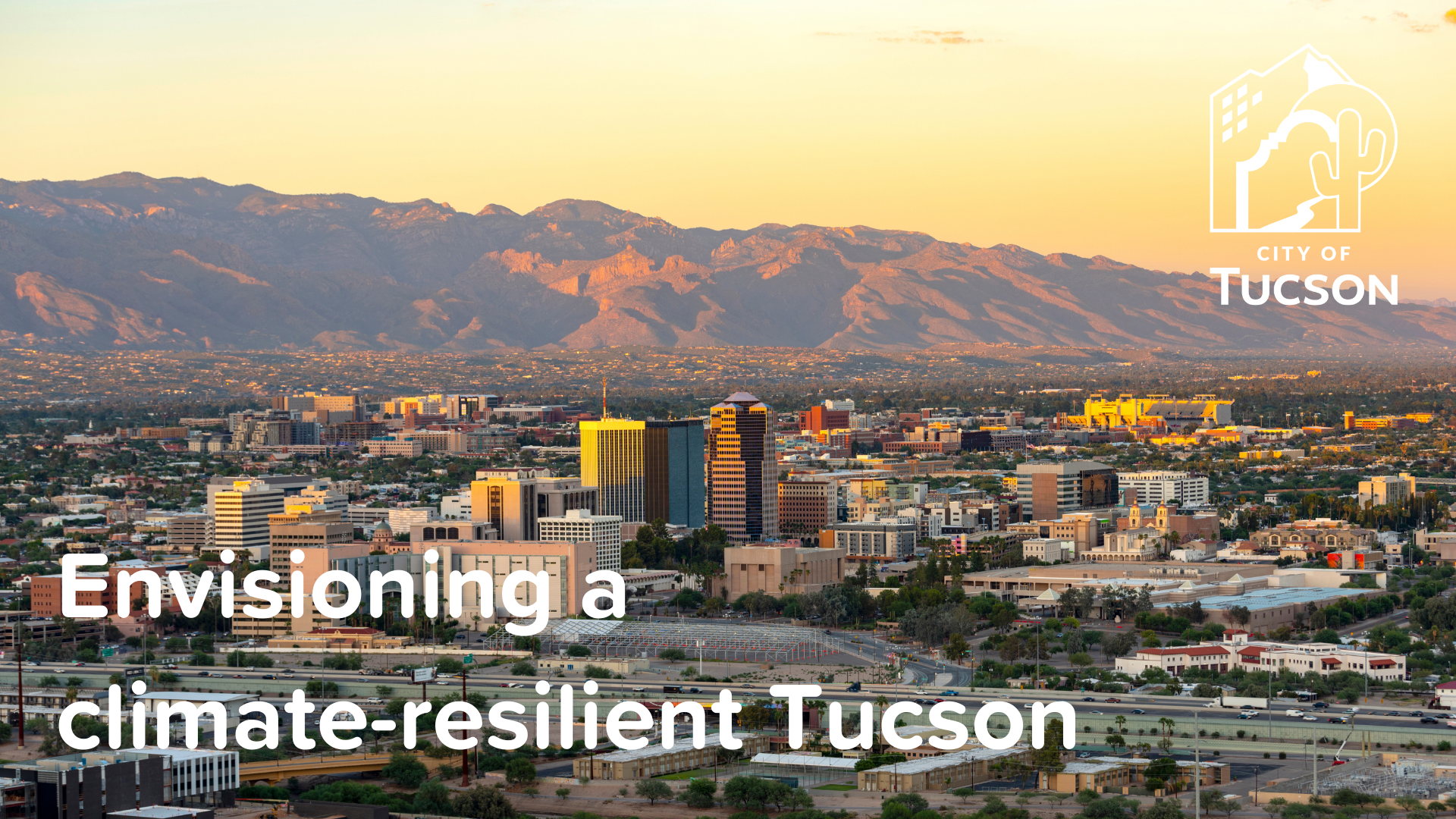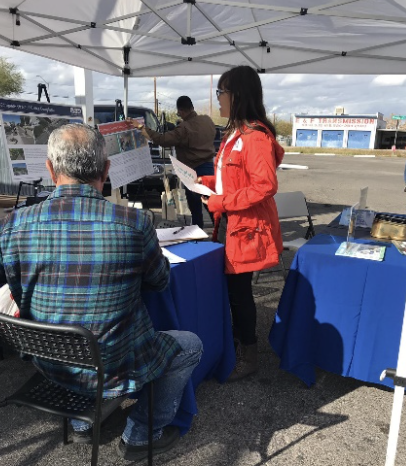Developing a Climate Action and Adaptation Plan (CAAP) for the City
Background
In 2020, Mayor Regina Romero and the Tucson City Council committed to decisive action on climate change, declaring a Climate Emergency and establishing a 2030 carbon neutrality goal (i.e., net zero greenhouse gas emissions) for City operations and a 2050 carbon neutrality goal for community-wide operations. In January 2022, the City selected the nationally-recognized firm Buro Happold to develop a Climate Action and Adaptation Plan (CAAP) for the City built on equity and community partnership – especially frontline communities that are the most vulnerable to the impacts of climate change. Living Streets Alliance has been selected as part of the Buro Happold consultant team to be the local advocacy organization to lead community engagement and partnership efforts throughout the development of this plan.
Climate Action & Adaptation Plans are plans built out from a combination of technical expertise and lived experiences to set explicit, actionable items that a city could possibly take to reduce greenhouse gas emissions as well as different ways to support local communities as we collectively develop deeper resilience to the changes in climate conditions.
An Equity-Forward Approach
Throughout our community engagement process, we as a consultant team are employing a targeted universalism framework, where solutions are developed with equity at the foundation; they are observant and critical of societal disparities and inequities. They are considerate of the social structures, cultures, knowledges, geographies, and barriers that leave communities out of decision-making processes that stand to affect their livelihoods and well-being. Through this approach, we seek to reach and amplify the voices of those communities, striving to advance and achieve four forms of equity: procedural, distributional, structural, and transgenerational.
Communities of Priority
While the CAAP planning process will aim to engage all Tucsonans, it is intentional in centering communities often excluded or deprived of access to decision-making processes. Here in Tucson these communities include, but are not limited to, Latinx communities, Spanish-speaking communities, Indigenous communities, migrant communities, low-income residents, youth, and local business owners.
To reach these groups, the City and LSA will partner with six local organizations to facilitate engagement and thought partnership throughout the development of the plan. These include the San Xavier Co-op, the Southside Worker Center, the International Indian Treaty Organization, Paisanos Unidos, the AZ Youth Climate Coalition, and Local First Arizona.
What is LSA’s Role?
Our role is focused on deepening relationships with priority communities and carrying forward a specific set of community engagement activities with an emphasis on meeting people where they are and amplifying the voices of people who are most impacted by the conditions of climate change to make sure that the plan is developed from the needs, wishes, and knowledge of these communities.
We’re excited to bring our community engagement learnings from our Complete Streets work to create engagement spaces that foster connection and elevate lived experience just as much as technical expertise. Our community engagement toolkit includes three types of activities:
Community Dialogues are small-group workshops hosted at times and spaces that are convenient for the group. Community Dialogues are built upon an Appreciative Inquiry approach which allows participants to share stories, work together to articulate their vision, and arrive at shared themes and recommendations to guide the CAAP. We’ll be hosting Community Dialogues with a variety of groups designated for the project with a particular emphasis on communities or geographies where traditional public meetings/open houses tend to fall short.
Pop-Up Events are pop-up engagement stations set up at everyday destinations where people are already convening or at community events that are already taking place with a focus on meeting people where they are and broadening avenues for engagement. We’ll be hosting pop-ups in front of grocery stores, partner locations, and during community events to engage people in conversations about Climate Action and Adaptation as they go about their daily lives.
Public Workshops are larger stakeholder gatherings where up to 200 people from various groups and communities are invited to participate in feedback sessions much like the community dialogues–sharing collective knowledge, lived experience, and ideas for creating a more resilient and adaptive Tucson. Here people will learn more about the CAAP, hear from the City, meet the consulting team members, and be part of the dialogue workshop.
An integral part of our community engagement strategy is our Promotores Program. We’re looking to work with 5-10 Promotores (Community Ambassadors) with deep ties to the communities most impacted by climate change throughout Tucson. Their role in outreach, which includes co-facilitating Community Dialogues & Pop-Ups, will both distribute funding to people on the ground and train them in facilitation around this topic as well as help guide the outreach process in a way that is adaptive and community-centered.
Alongside the Promotores, we will be hosting 2 Public Workshops, up to 18 Community Dialogues, & up to 18 Pop-Up events.
Find out more
The City of Tucson has a Climate Action Hub where you can learn more about the CAAP development process as well as other actions and initiatives the City is undertaking to address climate change.
Visit the site to sign up for upcoming workshops and subscribe to their mailing list to stay updated on progress toward climate action and adaptation in Tucson.







